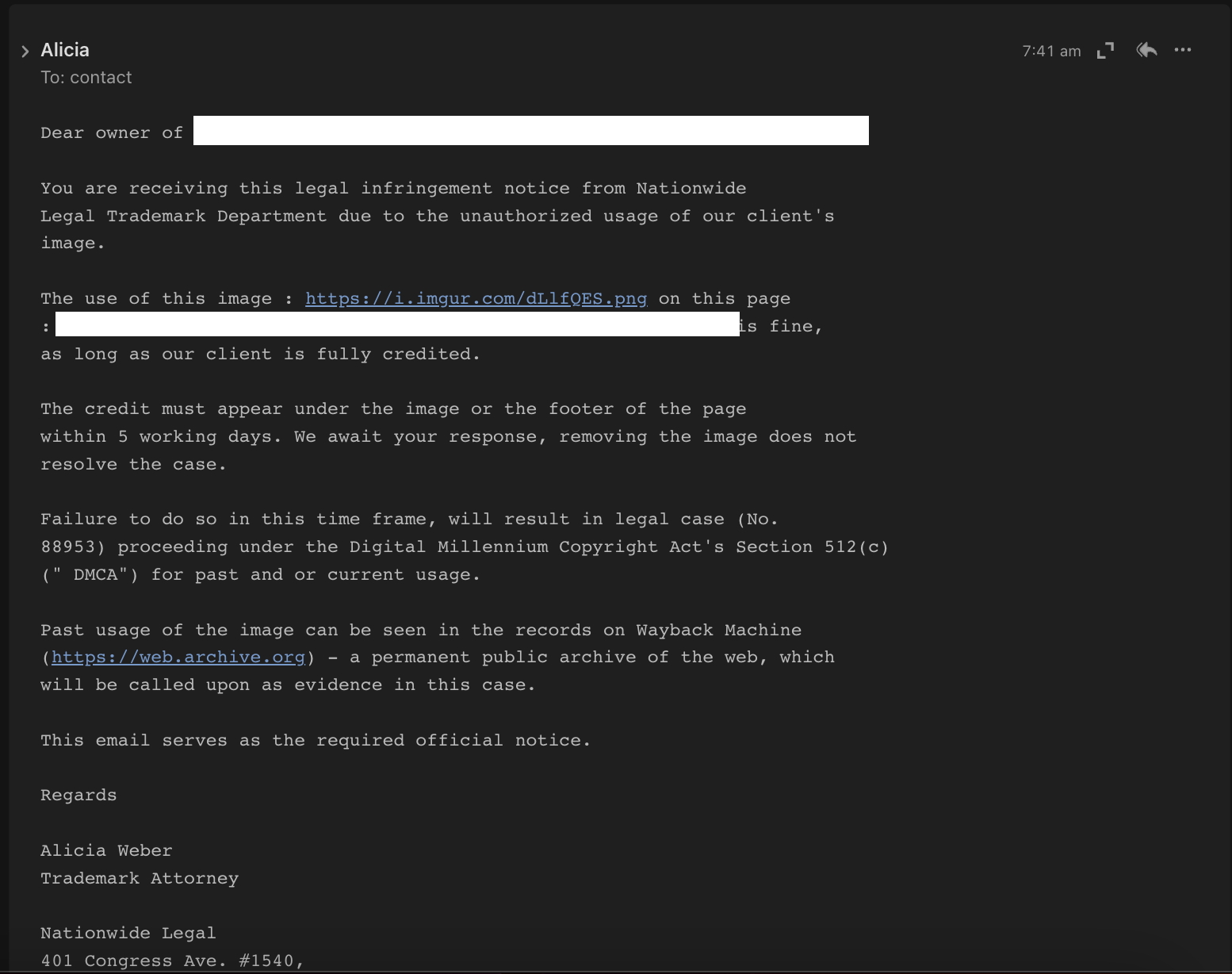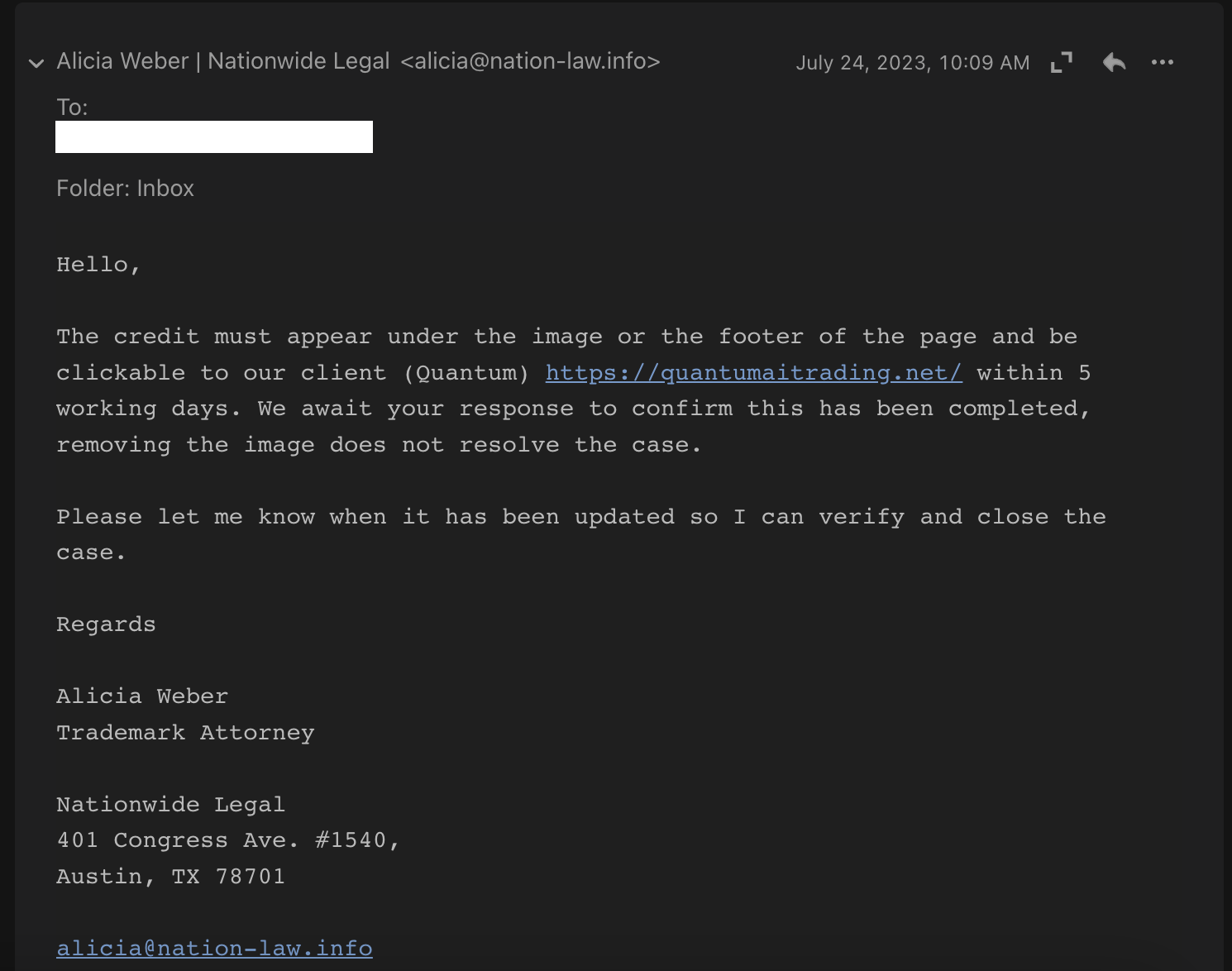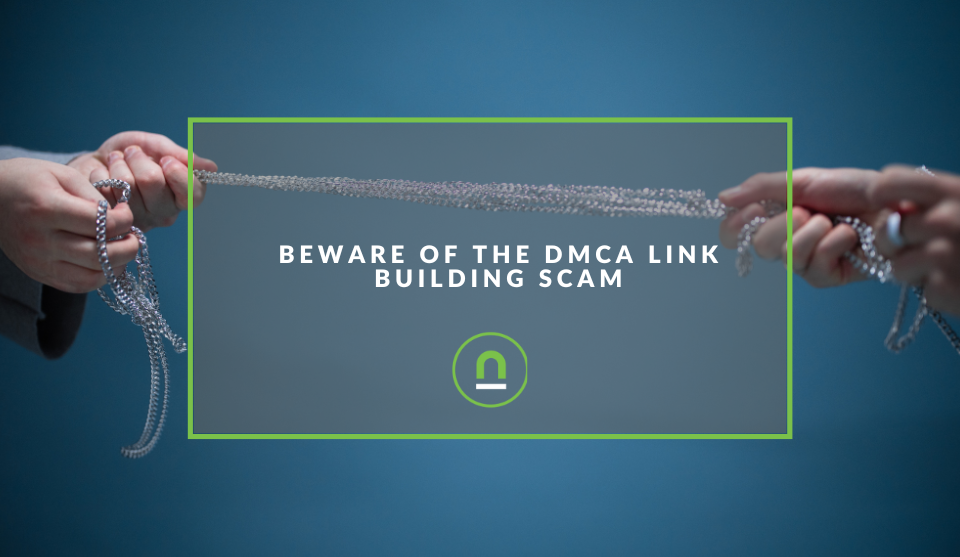Recent posts

Press Releases
Where You Can Find International Remote Jobs For South Africans
23 December 2025

Money Talks
Why Cross-Border Payments Are Slow, Tedious, and Expensive
17 December 2025

Money Talks
The Rise Of Trading Platforms In South Africa
16 December 2025

nichemarket Advice
The South African VAT Threshold Chokehold
05 December 2025
Popular posts
Extravaganza
Trending Music Hashtags To Get Your Posts Noticed
24 August 2018
Geek Chic
How To Fix iPhone/iPad Only Charging In Certain Positions
05 July 2020
Extravaganza
Trending Wedding Hashtags To Get Your Posts Noticed
18 September 2018
Money Talks
How To Find Coupons & Vouchers Online In South Africa
28 March 2019
Beware Of The DMCA link Building Scam
24 July 2023 | 0 comments | Posted by Che Kohler in nichemarket Advice
Link building is an essential part of search engine optimisation (SEO) and remains one of the top three ranking factors to move the needle on your website. By building high-quality backlinks to your website, you can improve your website's ranking in search results.
Search engines realise getting links are not an easy feat, and web admins know not to give away links or only link out of their site when relevant, so there is always a barrier to acquiring links. Given search engines rely on backlink profiles to rank websites, there's been an arms race to acquire links and try to game the system.
Every day thousands of grey market and black market links are being sold, and the cheaper the provider, the more shady the tactics. While link-building campaigns work under white hat conditions, many link-building scams can damage your website's reputation and even penalise you by search engines.
What are link-building scams?
Link-building scams are deceptive practices that promise to improve your website's search engine rankings by acquiring backlinks. These scams often involve tactics that violate search engine guidelines, such as:
- Using private blog networks (PBNs)
- Building links on link farms
- Buying low-quality directory or comment links
- Posting fake guest posts
- Using unproven link-building agencies
- Creating cloaked links
Why are link-building scams a problem?
Link-building scams are a problem because they can damage your website's reputation and even get you penalised by search engines. When search engines detect that you are using link-building scams, they may lower your website's ranking in search results or even remove it from their index altogether.
The DMCA request scam
DMCA stands for Digital Millennium Copyright Act, and it is used to have hosting companies, Google and website owners remove content that infringes on copyright. A DMCA request is when someone requests the removal of content or a web page due to copyright violations, and it can be filled legitimately if you find a website using your content without proper accreditation or you want them to remove it.
It can also be used maliciously to get specific content removed from the web and to bully websites or independent creators out of spreading certain content since they wouldn't have the funds to dispute expensive lawsuits legally.
Knowing that legal matters are taken seriously by the average person, scammers are using this request to try and manipulate you into giving them links.
What is the DMCA scam?
First, the scammer gets an order from a client to build links; now, instead of approaching web admins to broker deals that might lead to paying them, the scammer looks to pocket all of the money.
The scammer would instead buy a web domain and spin up a website that looks like a legitimate law firm, and set up an email box.
The next step is to list websites in a specific niche and begin to contact them.

Fake DMCA request
They will scrape websites for email addresses or contact forms and send machine-generated emails as the lawyer claiming DMCA copyright infringement, and instead of having the site remove the content, they are asking for a link instead.
The email says first starts off threatening, as most legal notices sound, but it ends by saying, "Our client is happy for their image to be used and shared across the internet.
However, proper image credit is due for past or ongoing usage." The appropriate image credit should be done with "a link to" the site "within 5-7 days." "Otherwise, we are required to take legal action,".
Once you respond, they will send over their client link for you to insert.
 Pushing client links on you
Pushing client links on you
Now, if you're unsure if an image is royalty-free and react, you might simply give them the link because taking down an image or replacing it is a bit of a hassle.
If you give into their demands without question, you've given their client a link they didn't earn; it might not be contextual and bad for both parties in the long run.
How to check if it's a scam?
Now this is not a bulletproof list, but it's a checklist I used that pulled up some red flags.
- I checked the law firm, which looked legit, but the domain name was only registered this year; the site claims the firm has been around for many years.
- I checked the members listed, and none had a LinkedIn or social presence.
- I googled the address of the law firm, and it was attributed to another law firm.
- I checked the DA and PA of the website and backlink profile, and it was non-existent.
- I checked if the image in question was royalty-free and sent proof. The link they wanted to insert didn't even have the original image on it, nor did they specify the creator.
- If you are concerned, your best bet is to call the law firm for additional information and provide proof of where you sourced the royalty-free image or leave it until they escalate to your hosting provider.
What are the signs of a link-building scam?
If you're not on the receiving end of these scams, you could be the one funding it. There are a few signs that you can look for to help you identify a link-building scam.
These include:
- Promises of quick and easy results
- Low prices
- Guarantees of high rankings
- Pressure to buy now
- Lack of transparency about the link-building process
How to avoid link-building scams
Link-building agencies come in all shapes and sizes, and they all have their own tactics; some play a volume game where it's all about getting you as many links as possible, while others play a game of numbers, where it's all about getting links from high authority sites, regardless of if they are contextually relevant or not.
It might be great to get a link from a website like a celebrity gossip magazine, but it would be better suited for something like a fashion brand versus something like Plumbers.
Link-building campaigns should be unique to your niche and should be able to drive your referral traffic, not only net you a niche anchor text.
If you're thinking about using a link-building agency but don't want to fund a scam or get scammed, here are a few things you can do to avoid link-building scams.
These include:
- Do your research: Before you work with a link-building agency, be sure to do your research and read reviews.
- Ask questions: Don't be afraid to ask questions about the link-building process. A reputable agency will be happy to answer your questions.
- Be wary of low price: If an agency is offering you backlinks at a very low price, it's likely that they are using black hat tactics that could get you penalised by search engines.
- Use a reputable link-building agency: If you're not sure where to start, use a reputable link-building agency that has a good track record.
Links should keep your rankings from sinking.
Link building is an integral part of SEO, but it's essential to do it correctly. If you are looking to build links, do not fund these shady business practices. Instead, look for reputable link-building agencies; you might pay a bit more, but you won't see links removed as often in the future or incur penalties to your rankings.
By avoiding link-building scams, you can protect your website's reputation and improve your chances of ranking well in search results.
If you're on the other end and link builders are trying to scam you out of links to the website you've worked so hard to build, you can use the tactics above to ask questions or ignore them. If it is a legitimate DMCA request, your hosting provider will also contact you to see that the content is removed since they are serving it.
Contact us
If you would like us to improve your link building for your site or want to know more about digital marketing for your business, then don’t be shy. We’re happy to assist. Simply contact us
Are you looking to promote your business?
Business owners can create their free business listing on nichemarket. The more information you provide about your business, the easier it will be for your customers to find you online. Registering with nichemarket is easy; all you will need to do is head over to our sign-up form and follow the instructions.
If you require a more detailed guide on how to create your profile or your listing, then we highly recommend you check out the following articles.
Recommended reading
If you enjoyed this post and have a little extra time to dive deeper down the rabbit hole, why not check out the following posts on link building.
- How To Use The Forgotten Art of Dead Link Building To Boost SEO
- How To Use April Fools As A Link Building Tool
- How To Build Links From Journalists
- The Pain Of Link Building In Memes
- How To Use Broken Links To Earn New Links
- How To Start Reclaiming Lost Backlinks
- How To Build Links With Brand Mentions
- How To Build Local Links To Your Website
Tags: Link Building, SEO, Guest post
You might also like
Why Load Bin Accessories Make Your Bakkie So Much Easier to Live With
26 November 2025
Posted by Jasper J in Petrol heads
A look at how to get the most out of your bakkie, keep it protected as it works and why load bin accessories make your bakkie so much easier to live ...
Read moreThe Difference Between SOAP Notes and DAP Notes
02 December 2025
Posted by Che Kohler in Doctors Orders
A look at SOAP format, which remains the classic choice for healthcare professionals, while DAP notes offer more flexibility for mental health docume...
Read more{{comment.sUserName}}
{{comment.iDayLastEdit}} day ago
{{comment.iDayLastEdit}} days ago
 {{blogcategory.sCategoryName}}
{{blogcategory.sCategoryName}}


